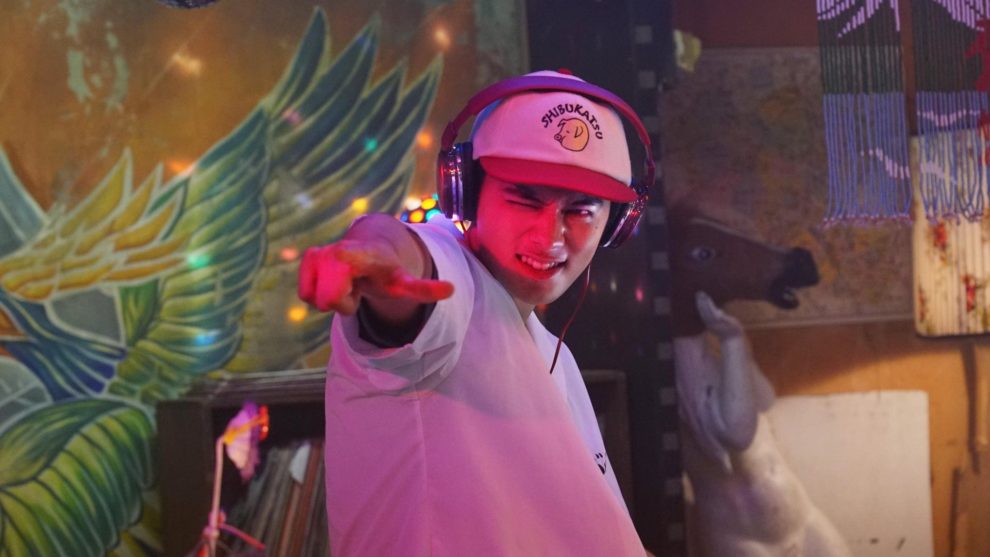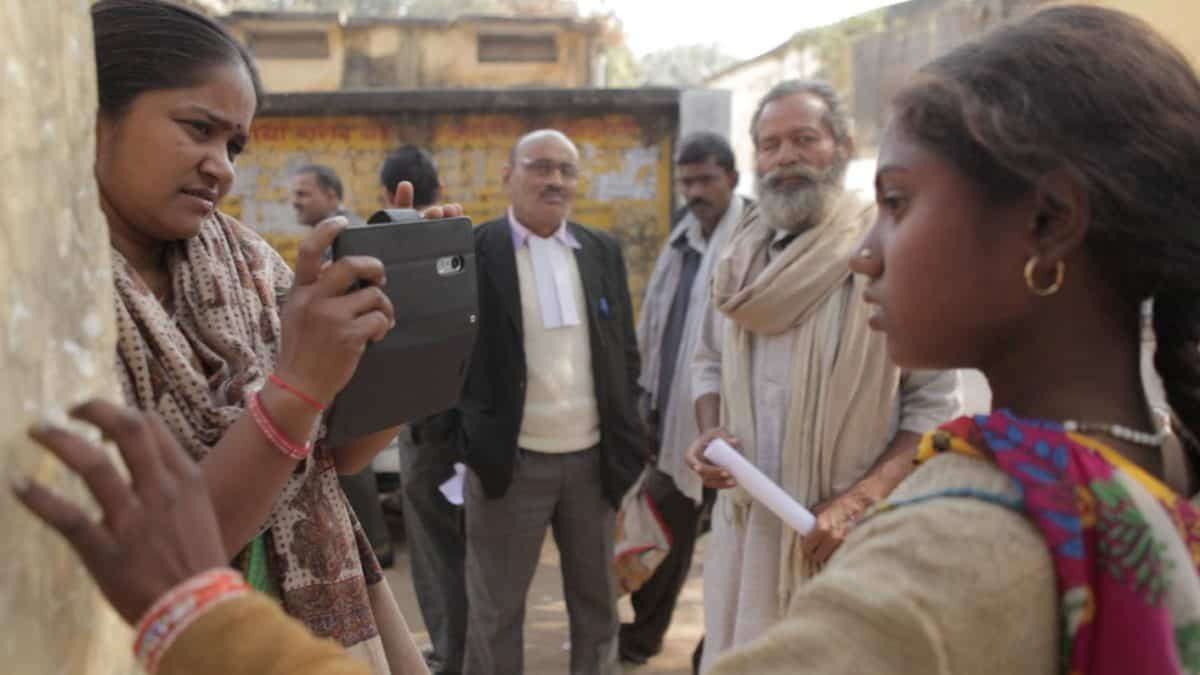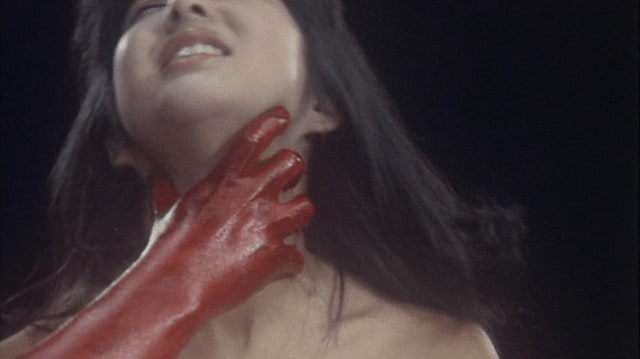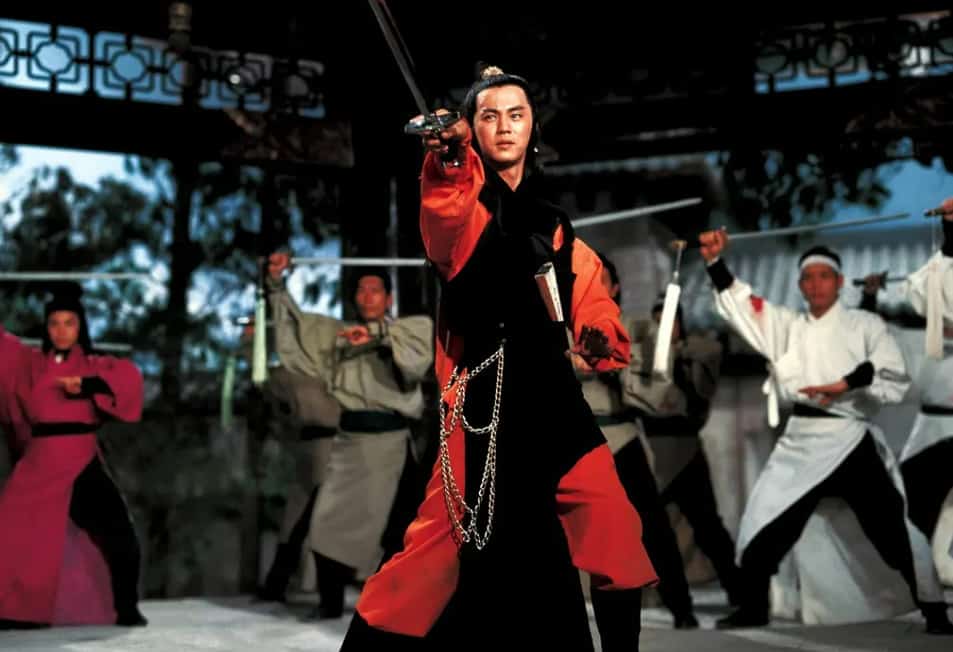After two movies that stood out for their music video aesthetics and visual flair (“Limit of Sleeping Beauty” and “Chiwawa”) with the second one being much better, Ken Ninomiya changed his style somewhat, by shooting a title that is a tribute to the 80s (following the international trend essentially) but also so much more.
“Tonkatsu DJ Age-Taro” is screening at Neuchatel International Fantastic Film Festival
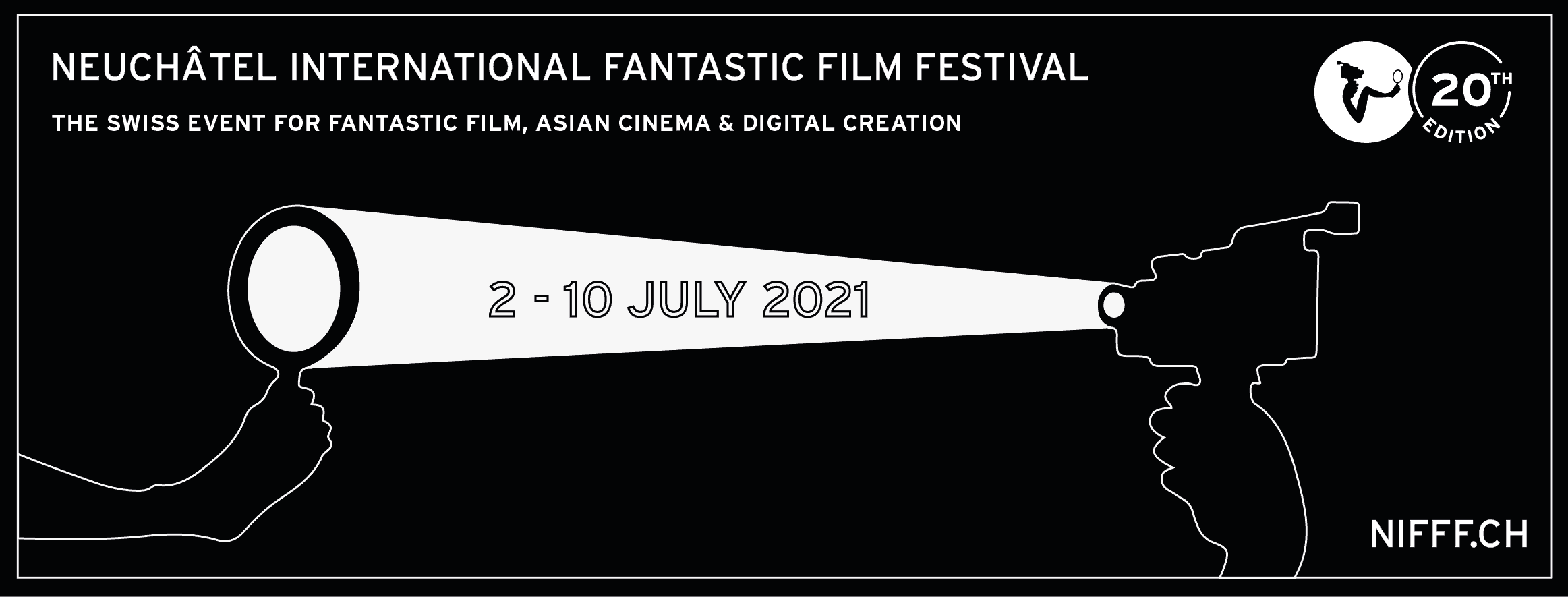
The script is adapted from a manga series by Ipyao and Yujiro Koyama, which also became an anime, and focuses on Agetaro Katsumata, whose family runs a tonkatsu (pork cutlet) restaurant in Shibuya, Tokyo. Agetaro will inherit the restaurant one day and he currently performs menial jobs at the restaurant, like chopping up the cabbage and delivering food orders. He isn't satisfied with his work, while his father still believes he is not dedicated enough to be allowed to deep fry meat. He and his rather dorky friends spend their time mostly whining about their day jobs, at least when they are not stalking trainee stylist Sonoko whom they watch through binoculars on the window across the building they mostly spent their time. One night, however, Age delivers tonkatsu to the staff of a nightclub, where he witnesses Oily djing, and his life immediately changes, as he decides to be one himself. Great Dj/bad at everything else Oily agrees to be his mentor, essentially exploiting him to find a palace to stay, but soon a deep friendship is formed. The road to success however, includes a number of failures and disappointments.

Ken Ninomiya directs a movie that leaves a distinct 80's sense, through a number of aspects. The most evident one is the approach to the story, which essentially follows the famous path of “loser finds out he is good at something – trains intensely – becomes better at it – suffers a significant drawback – eventually triumphs also getting the girl”, which made so many sports movies of the decade so successful (“Karate Kid”, for example). The music occasionally, the role of Oily, the way that the stalking is presented in a way that does not seem offensive, and the path Age's connection with Sonoko unfolds also point towards the same path, resulting in a film that, once more in Ninomiya's work, is filled with a very appealing sense of nostalgia.
Of course, this being a Japanese movie based on a manga, the goofiness, the absurd jokes and the occasionally even more absurd appearances are not missing, with Age's friends being the main representatives of this element, and a number of gags following close behind. In general, however, the slapstick humor so frequently appearing on similar productions is toned significantly down here, in a concept that definitely benefits the narrative.
The most intriguing element however, in terms of context at least, is the way Ninomiya manages to communicate, rather subtly, a number of social comments, not all of which are particularly positive. That he is to inherit his father's shop despite the fact that his sister appears to be much more dedicated and skilled than him is a definite jab towards patriarchy. The way his father uses tough love towards him, but also allows him to pursue DJing, essentially showing patience and eventually support towards him is a comment on the results of good parenting. That his friends are losers and have a big failure during the story, but Age remains dedicated towards them, and eventually triumphs with their help, is a comment on the value of friendship. That both him and Oily have to do other jobs in order to support themselves is a comment on the whole concept of DJing and if someone can actually make a living of it. The impact fame on YouTube can and cannot have is another one, with the narrative essentially being filled with such comments that add much to the depth of the movie.
Apart from context though, the eye candy element that is so dominant in Ninomiya's works is evident here once more, along with the music video aesthetics. Takuya Miyagawa and Yoji Abeki's set design finds its apogee in the gang's den that overflows with kitsch, while both the various venues and the tonkatsu restaurant are impressively set and captured, with Tetsuya Kudo's cinematography and coloring depicting everything in a style quite fitting to the overall aesthetics. Junnosuke Hogaki's editing implements an also fitting, rather fast pace, while the cuts during the various live performances are excellently timed, essentially the main source of the music video aesthetics of the movie, along with the music of course. The whole audiovisual aspect finds its apogee in the “Heaven is a place on Earth” Djing scene, which is one of those that people who grew up in the 80s will probably want to see again and again.
Regarding the acting, Takumi Kitamura as Agetaro has this starry-eyed approach that essentially hides the fact that his character is not particularly likeable. Maika Yamamoto as Sonoko is rather beautiful, but her role mostly consists of her showing the fact. The one who steals the show however, is Yusuke Iseya as Oily, with him giving a rather measured performance in a difficult role, with his smile speaking volumes on his thoughts and overall mentality on a number of occasions.
“Tonkatsu DJ Age-Taro” , much like the 80s movies, does not stand up to logic particularly. However, it is rather entertaining, easy to watch and listen to, and essentially, a quintessential feel-good movie.


